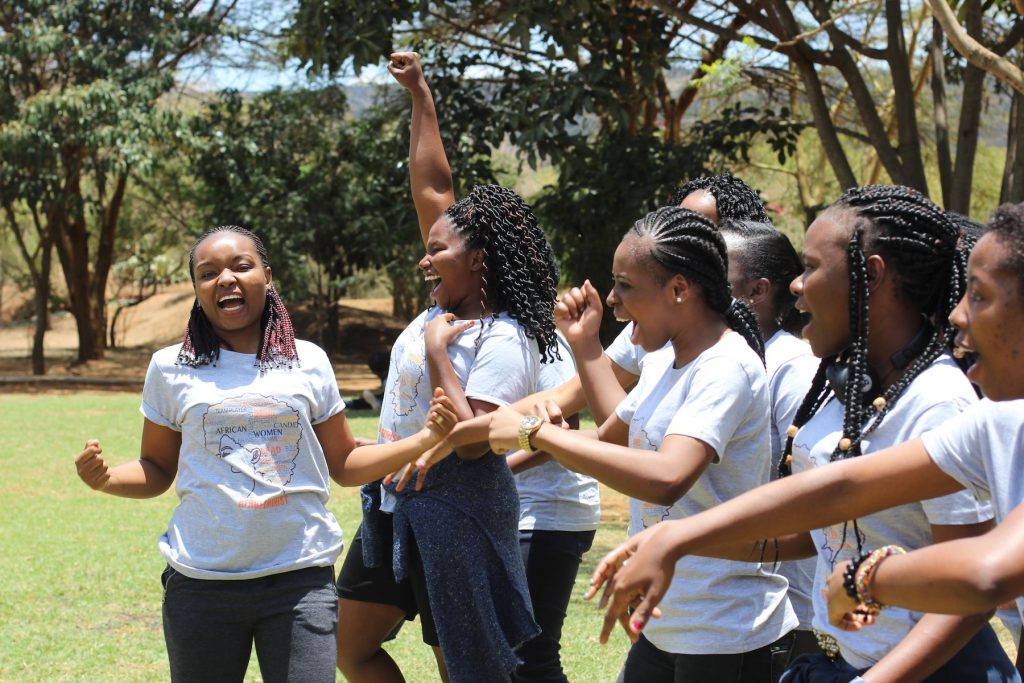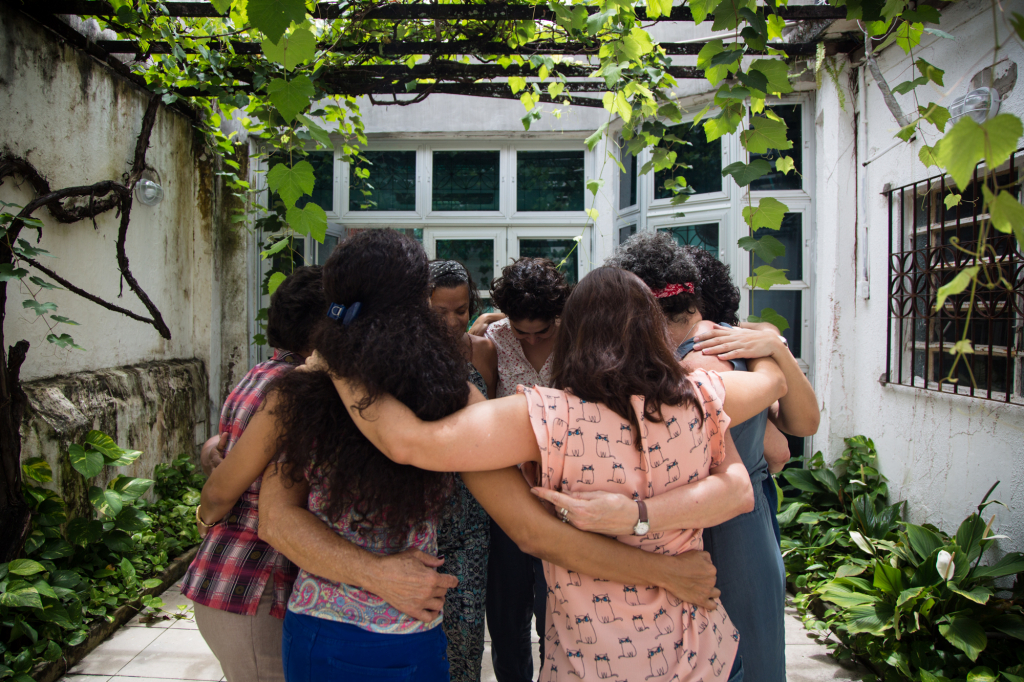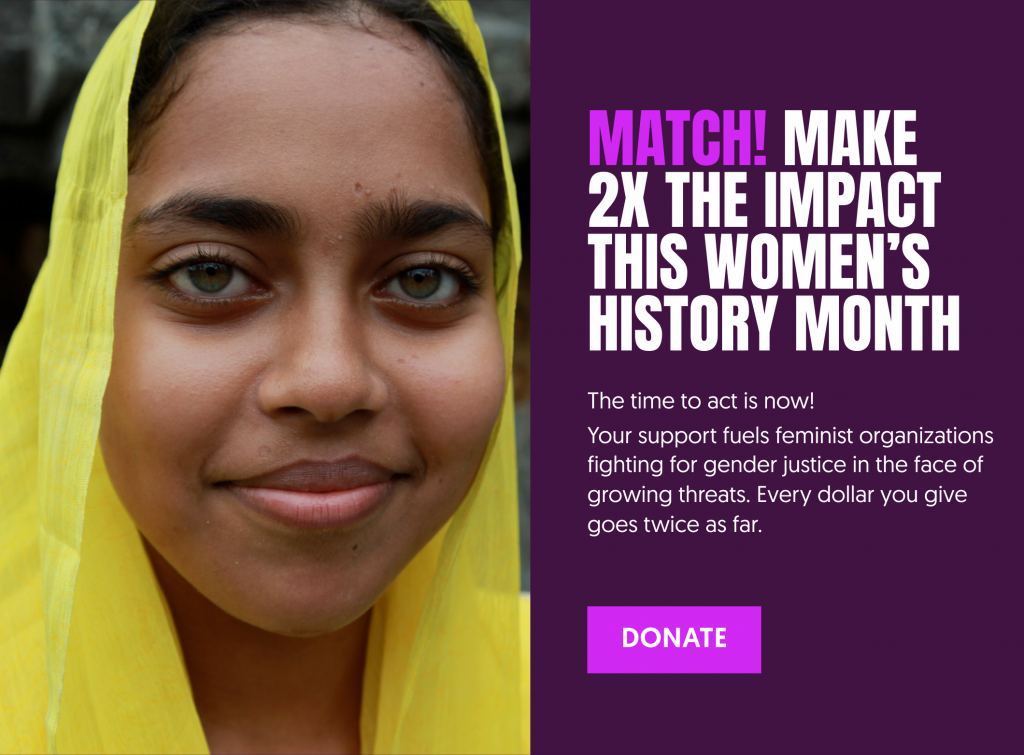Black Philanthropy Month: Interview with Two Black Feminist Philanthropic Leaders
Black Philanthropy Month, observed every August, is a global campaign that Global Fund for Women helped create to celebrate and inspire investing in Black philanthropic leadership to strengthen African-descended communities across the globe. Today, the campaign lives on through many organizations, including Women Invested to Save Earth Fund (WISE) and Reunity.
But Black philanthropy doesn’t begin and end in August. While Black people have a long history of investing their time, heart, and resources to create sustainability and care for their communities, this isn’t always recognized or reciprocated by large philanthropic institutions. Globally, out of nearly $70 billion in foundation giving in 2018, less than half of one percent went to Black feminist social movements.
Global Fund for Women is proudly Black woman-led, and supports Black feminist causes globally, including by proudly fiscally sponsoring the Black Feminist Fund (BFF), a one-of-a-kind fund focused explicitly on supporting Black feminist movements.
This August, we lift up not only who we fund but how, through a conversation with Shonda Brooks, Global Fund for Women’s Chief of Staff and manager of our fiscal sponsorship program, and Hakima Abbas, co-founder of the Black Feminist Fund.
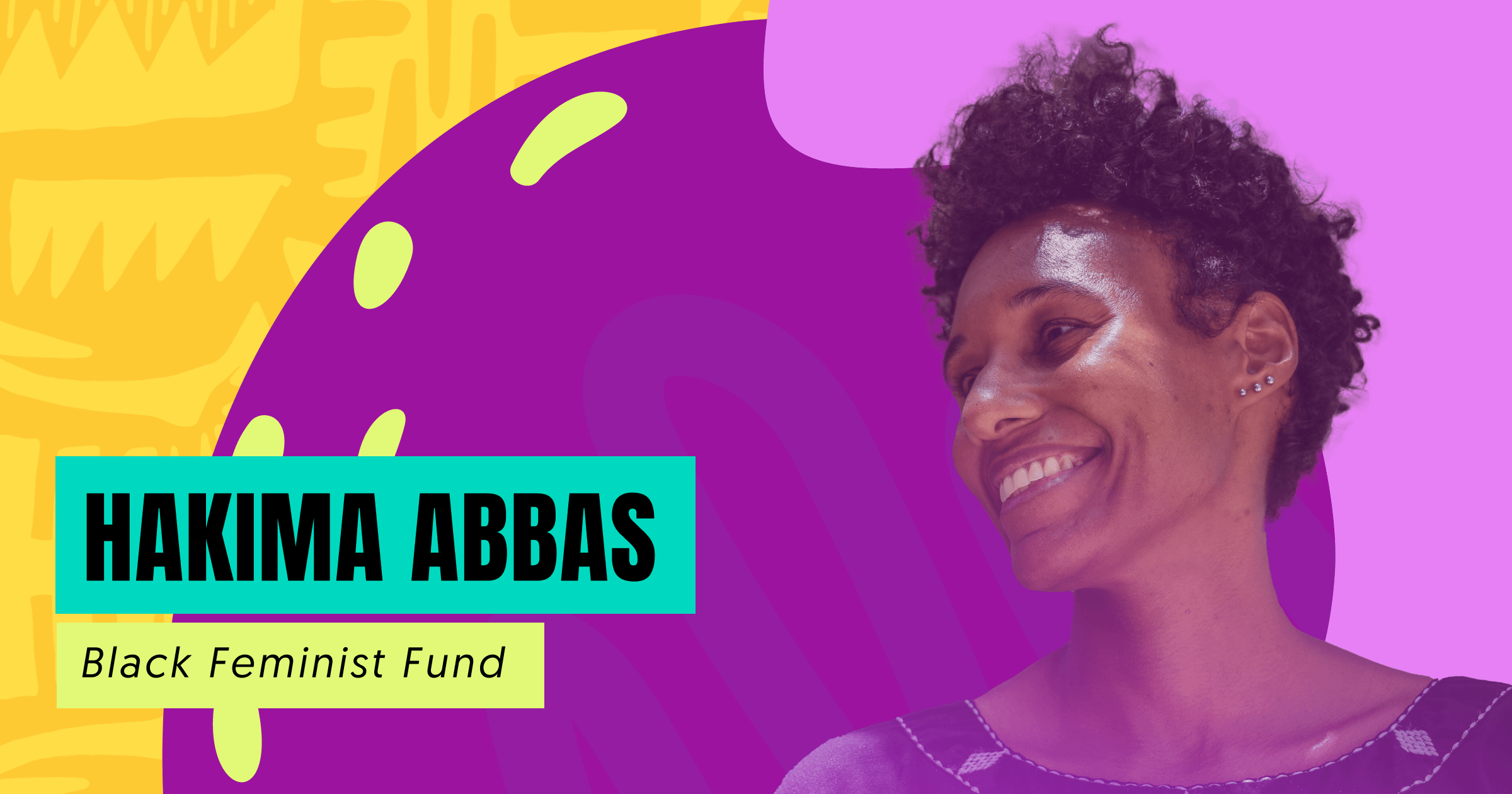
Philanthropy has historically overlooked and under-invested in Black feminism. What is the cost of this and how are you working to fix it?
Hakima Abbas: The cost of overlooking Black feminist movements is ruinous. The fact is that we have to recreate this world, and those who are able to get us out of this ecological crisis, away from the precipice of war, out of the scourge of mass impoverishment, are not those who are benefiting from what got us here. It will be those who against all odds have survived, those whose creativity and innovation have enabled their communities to thrive despite the hegemonic system. Black feminism is a thought and practice that emerges from the realities and the alchemy of Black women and gender diverse people.
Black feminism offers the solution to a world in crisis. Ignoring, under valuing, overlooking and under-resourcing Black feminist movements will cost us everything.Hakima AbbasBlack Feminist Fund co-founder
What are the main challenges in supporting Black feminism at scale in philanthropy and how does Black Feminist Fund’s work address them?
Hakima Abbas: Philanthropy, at its root, claims to rest in the idea of “charitable giving” by those “more fortunate” to those “less fortunate.” This claim deliberately obfuscates the reason for “fortune,” making redistribution a voluntary act of supposed generosity by those with money and power. Black feminism, at its root, rests in the idea of equity and justice. To achieve equity and justice, redistribution of wealth and equality of access is a prerequisite.
Philanthropy isn’t monolithic. There are large swaths of philanthropy that are against Black feminist ideas and agendas. There are large swaths of philanthropy that are supporting agendas that harm Black women, girls, and gender diverse people. We have to remember that billions of dollars are channeled every year to causes that are against bodily autonomy, reproductive rights, just economies, dignified labor, ecological care and stewardship, all of which are agendas that Black feminists advance.
Even within what is considered “progressive” philanthropy, there remain myths and narratives that create obstacles to Black feminist movements accessing the resources they need to meet their goals. These include the question of scale. Funders often ask movements about the scale of their movements while ironically not funding “at scale,” which is what movements deserve. In general, progressive philanthropy must make solidarity and trust the center of moving money. Philanthropy needs less bureaucracy and more bold commitment to support Black feminist movements.
How do you shift power with your grantmaking and ensure your partners are able to determine their own needs and priorities?
Hakima Abbas: The Black Feminist Fund is a collective idea. It is one that came directly out of Black feminist movements. And through the process of building the Black Feminist Fund, Black feminist movements are the core of everything that we do, whether that’s through participatory grantmaking or the Movement Leadership Committee that holds the oversight for all our work and makes sure we are accountable to movements. To the emerging leaders fellowship program or the Black women in philanthropy convenings that build the power of Black women and gender diverse people in philanthropy.
We have also made clear decisions about the grantmaking that disrupt the unwritten rules of philanthropy: by giving eight-year core grants, by ensuring our grant sizes are impactful, by not constraining our grants to particular themes or issues, because we know Black feminism is by nature intersectional.
We are not only shifting power for the sake of it, but because we believe in the inherent value, and trust the knowledge of, Black women and gender diverse people and our movements.Hakima AbbasBlack Feminist Fund co-founder
What are concrete actions that people can take right now to “Give Black to Give Back” for Black Philanthropy Month and beyond?
Hakima Abbas: This year Black Feminist Fund has launched a campaign around Black Philanthropy Month and 10 is our magic number. We are asking people to donate 10, 100, 1,000, 10,000 whatever amount they can and to find 10 people to match their giving.
More broadly, we ask people to act from a place of abundance, think about the world we want, and support those who are on the frontlines of making that world.
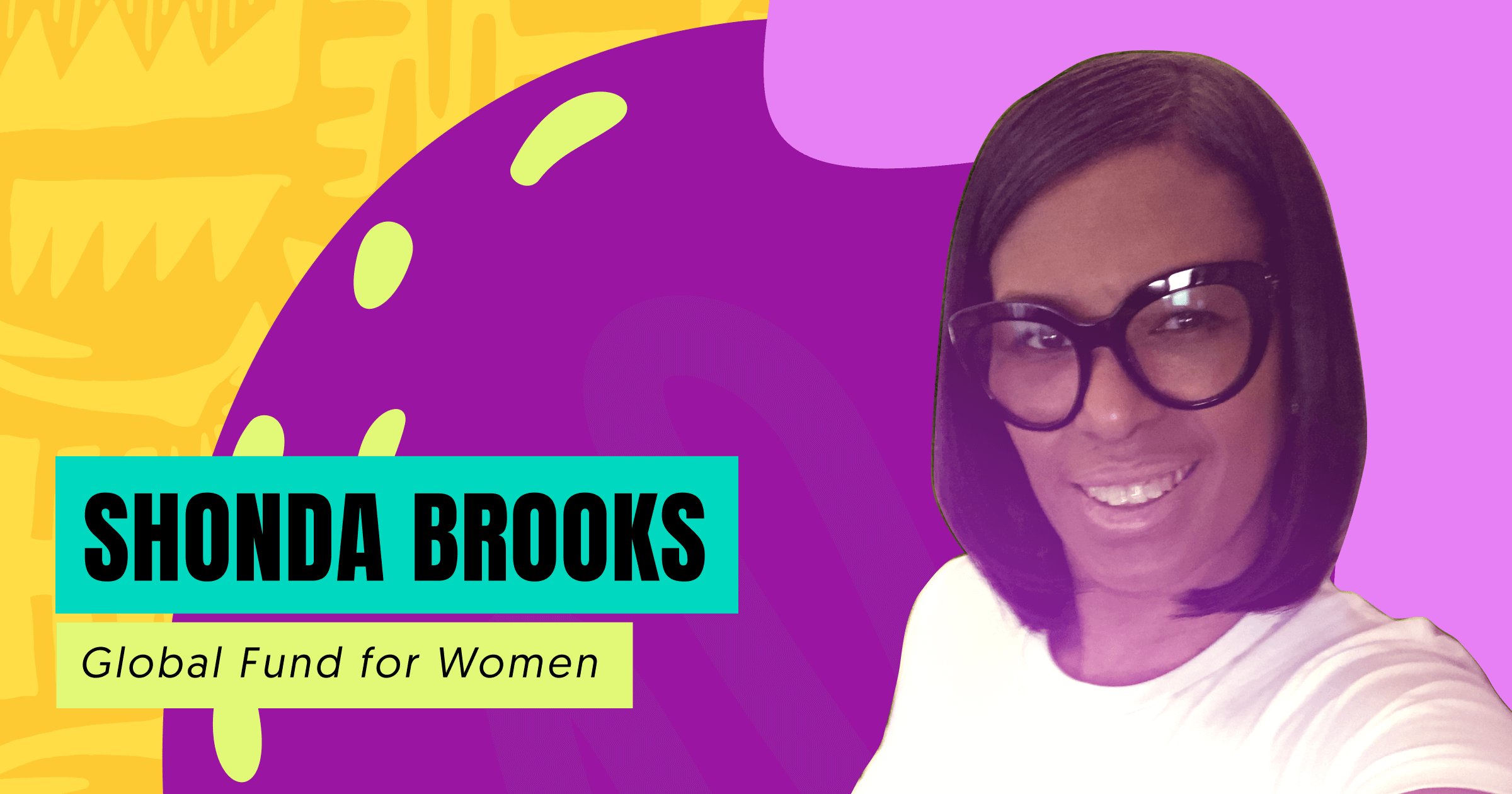
Can you briefly tell us about the Fiscal Sponsorship program at Global Fund for Women and how it connects to Black feminisms?
Shonda Brooks: Global Fund for Women Fiscal Sponsorship Program is a new initiative that hits two of our strategic goals. We have mobilized more and better resources to support gender justice movements, developing strategic partnerships to bring additional capabilities to support gender justice movements. This program supports Black-led organizations by providing them with the resources they need to further their organizational growth. Global Fund for Women Fiscal Sponsorship Program allows us in the Black community to support other organizations in their funding and their movements.
What kinds of groups does Global Fund for Women fiscally sponsor? What makes them unique?
Shonda Brooks: Global Fund for Women supports groups that are aligned with our mission, vision, and our values. We’re committed to providing support—funding and more—to activists, networks, organizations, and movements working towards gender and racial justice for all. We need to forge a systematic and sustainable change by shifting resources and power to Black, Indigenous, and other communities who have long fought against violence, and who know their community needs best.
Black communities, and especially Black women, are creating solutions to problems that affect everyone—this is an opportunity to Give Back to Give Black! Let’s fund them!Shonda BrooksGlobal Fund for Women Chief of Staff
How might fiscal sponsorship create a ripple effect for gender and racial justice globally?
Shonda Brooks: Our Fiscal Sponsorship Program addresses harmful policies and practices in philanthropy, especially due to white supremacy in the field. Black communities, and especially Black women, are creating solutions to problems that affect everyone—this is an opportunity to Give Back to Give Black. Let’s fund them! Through this fiscal sponsorship program, we also address the challenges faced by small organizations when it comes to finding fiscal sponsors and/or receiving funds directly from donors. We are here to support them with our structure at Global Fund for Women. We want to see Black-led organizations, small Black-led organizations funded! Black people, especially Black women, have shown us what it is that needs to be done. Let’s fund them.
What are concrete actions that people can take right now to “Give Black to Give Back” for Black Philanthropy Month?
Shonda Brooks: It’s important to address that the current model of philanthropy is exclusive and causes harm. For Black Philanthropy Month, we call for funders to use their influence and resources towards those working for Black liberation, and not just stay in the hands of those who already have power and resources.
We need to forge a systematic and sustainable change by shifting resources and power to Black, Indigenous, and other communities who have long fought against violence, and who know their community needs best.Shonda BrooksGlobal Fund for Women Chief of Staff
